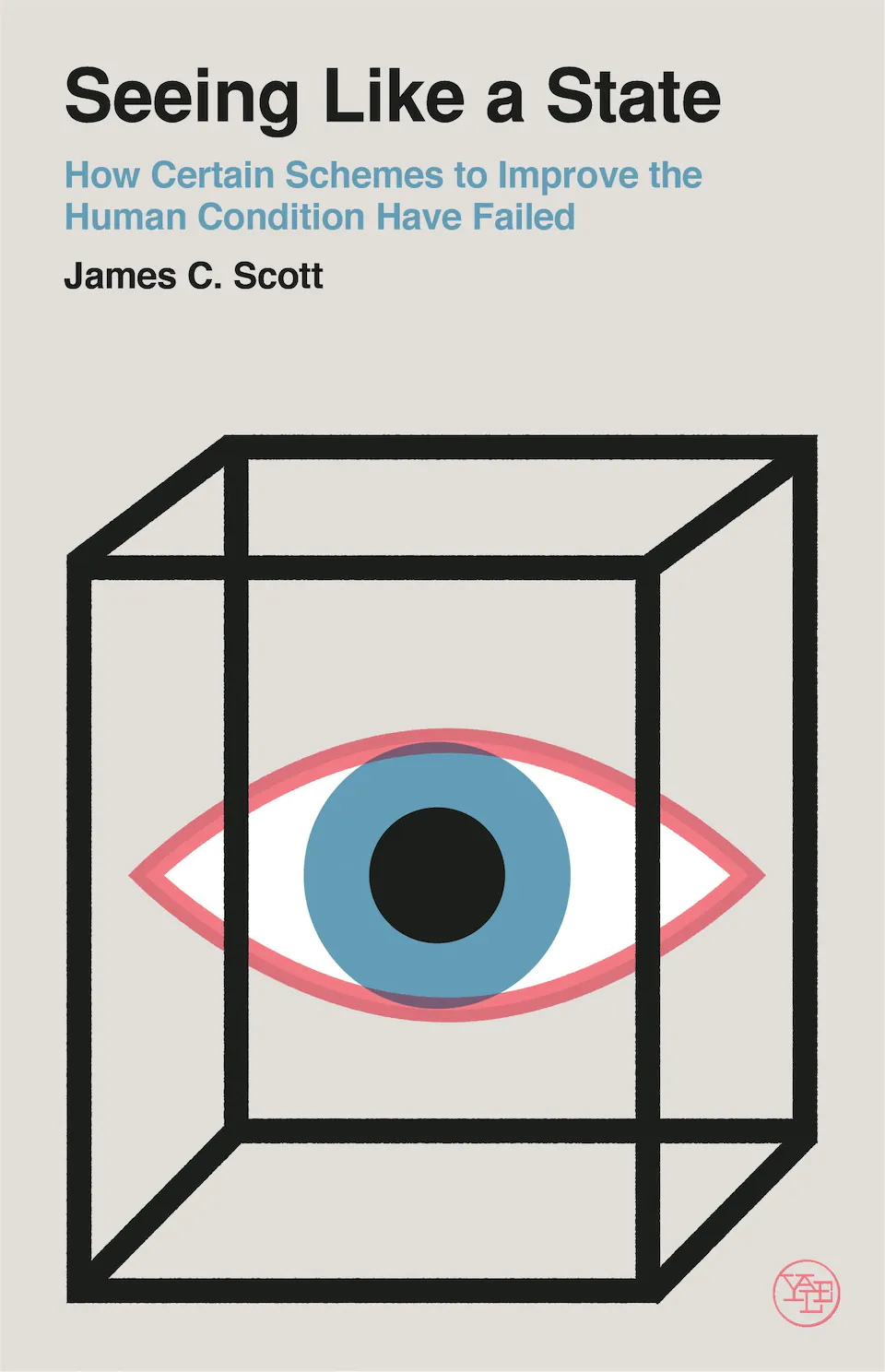Seeing Like a State: How Certain Schemes to Improve the Human Condition Have Failed
by James C. Scott
Added:
May 27, 2024
Book Description
Compulsory ujamaa villages in Tanzania, collectivization in Russia, Le Corbusier’s urban planning theory realized in Brasilia, the Great Leap Forward in China, agricultural “modernization” in the Tropics—the twentieth century has been racked by grand utopian schemes that have inadvertently brought death and disruption to millions. Why do well-intentioned plans for improving the human condition go tragically awry?
In this wide-ranging and original book, James C. Scott analyzes failed cases of large-scale authoritarian plans in a variety of fields. Centrally managed social plans misfire, Scott argues, when they impose schematic visions that do violence to complex interdependencies that are not—and cannot—be fully understood. Further, the success of designs for social organization depends upon the recognition that local, practical knowledge is as important as formal, epistemic knowledge. The author builds a persuasive case against “development theory” and imperialistic state planning that disregards the values, desires, and objections of its subjects. He identifies and discusses four conditions common to all planning disasters: administrative ordering of nature and society by the state; a “high-modernist ideology” that places confidence in the ability of science to improve every aspect of human life; a willingness to use authoritarian state power to effect large- scale interventions; and a prostrate civil society that cannot effectively resist such plans.
Notes & Highlights
Chapter 4
Brasilia is about the closest thing we have to a high-modernist city, having been built more or less along the lines set out by Le Corbusier and CIAM. Thanks to an excellent book by James Holston, The Modernist City: An Anthropological Critique of Brasilia,55 it is possible to analyze both the logic of the plan for Brasilia and the extent of its realization.
Chapter 5
Her vision of the form this collaboration might take closely resembles that of an agricultural extension service and farmers to whose needs the service is closely tied. That is, technical centers concerned with industrial production would be established throughout Russia, but the tasks they addressed and the services they provided would be directly responsive to the demands of the producers.85
The kind of knowledge required in such endeavors is not deductive knowledge from first principles but rather what Greeks of the classical period called mētis, a concept to which we shall return. Usually translated, inadequately, as “cunning,” mētis is better understood as the kind of knowledge that can be acquired only by long practice at similar but rarely identical tasks, which requires constant adaptation to changing circumstances.
Chapter 9
Mētis is typically translated into English as “cunning” or “cunning intelligence.” While not wrong, this translation fails to do justice to the range of knowledge and skills represented by mētis. Broadly understood, mētis represents a wide array of practical skills and acquired intelligence in responding to a constantly changing natural and human environment.
Mētis is most applicable to broadly similar but never precisely identical situations requiring a quick and practiced adaptation that becomes almost second nature to the practitioner. The skills of mētis may well involve rules of thumb, but such rules are largely acquired through practice (often in formal apprenticeship) and a developed feel or knack for strategy.
mētis lies in that large space between the realm of genius, to which no formula can apply, and the realm of codified knowledge, which can be learned by rote.
What it does mean, however, is that the innovations of mētis will typically represent a recombination (bricolage, to use Lévi-Strausss term) of existing elements;
Get a copy
